2020-2023 Cohort
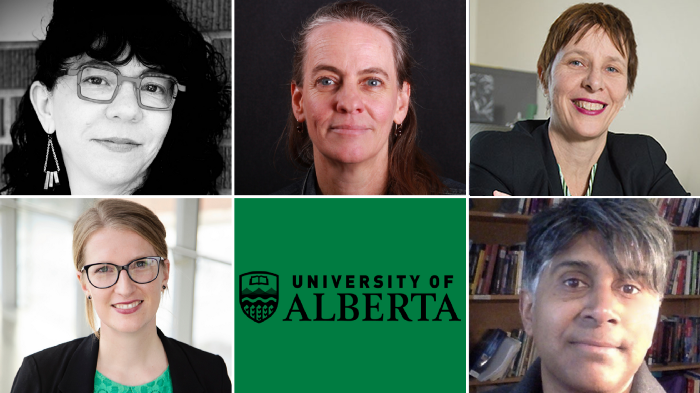
Climate Resilience in the 21st Century
Aligning with the Kule’s vision of creating a greater understanding of the most important issues of the day, we are excited to partner with the Sustainability Council in announcing the members of the 2020-2023 cohort who have come together around the theme “Climate Resilience in the 21st Century”.
Over the course of the next 3 years these scholars will weave an interdisciplinary and collaborative research community that explores the theme of “Climate Resilience in the 21st Century”.
You can stay up to date on the activities of the Kule Scholars Program by visiting the KIAS Website, Twitter, and Facebook Pages.
To learn more about our Kule Scholars please click on the links below.
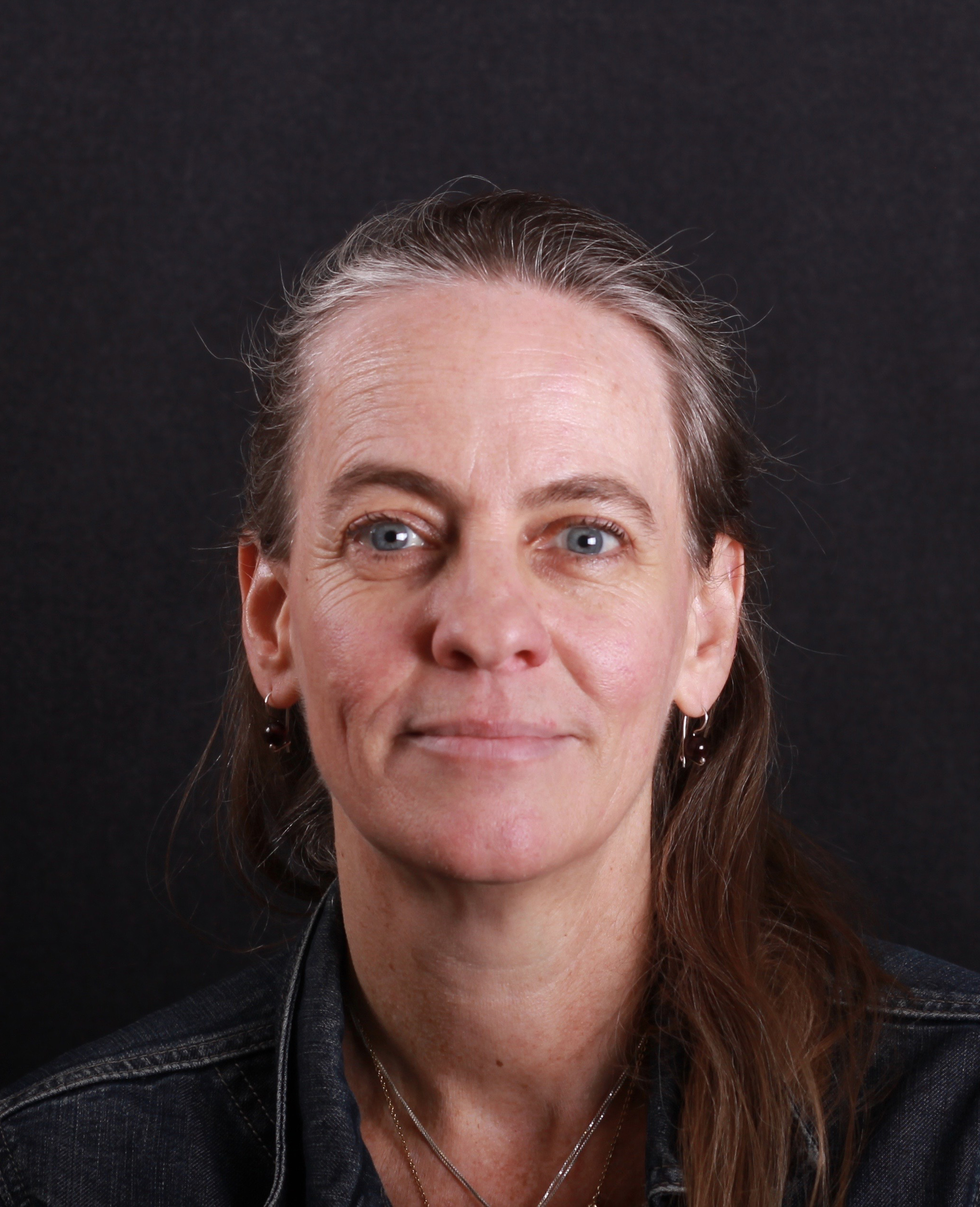 Dr. Selena Couture
Dr. Selena Couture
Assistant Professor
Faculty of Arts, Department of Drama
(Convener)
Selena Couture is a settler scholar and Assistant Professor at the University of Alberta, in Edmonton/ Treaty 6 territory and Métis Region No.4. Her projects engage with theatrical and cultural performances including speech acts, place naming, Indigenous language revitalization and phenomenological spatial orientations. Through these elements she explores relationships to land: deconstructing conceptions of settler colonial whiteness and possession while foregrounding the maintenance of Indigenous places through performance. Publications include, Against the Current and Into the Light: Performing History and Land in Coast Salish Territories and Vancouver’s Stanley Park (McGill-Queen’s UP Indigenous and Northern Series, 2020) and On this Patch of Grass: City Parks and Occupied Lands (Fernwood 2018).
She holds a SSHRC Insight Development Grant, “Decolonizing Performative Reenactments of History” which engages with the historical narratives created in rural BC, taking into account the lack of treaties to govern settler access to the land; the continuously present Indigenous protection of unceded territories despite settler colonial extraction; and the unique relation to the lands expressed through Indigenous languages.
She is also a co-director of the Ecologies research cluster in the SSHRC Partnership Grant "Hemispheric Encounters: Developing Transborder Research-Creation Practices," (2020-2027) led by Dr. Laura Levin of York University. The project is developing a network across the Americas of organizations, artists, activists and scholars actively working in and with hemispheric performance to share strategies and resources. Her research in this project focuses on human and environmental effects of transnational resource extraction, as well as site-based performance strategies of refusal that address urban, environmental, and spatial politics.
Her research practice responds to the growing crisis of global warming, develops a wider collaborative network and expands efforts to create responsible relations with Indigenous people, lands and all other-than-human beings.
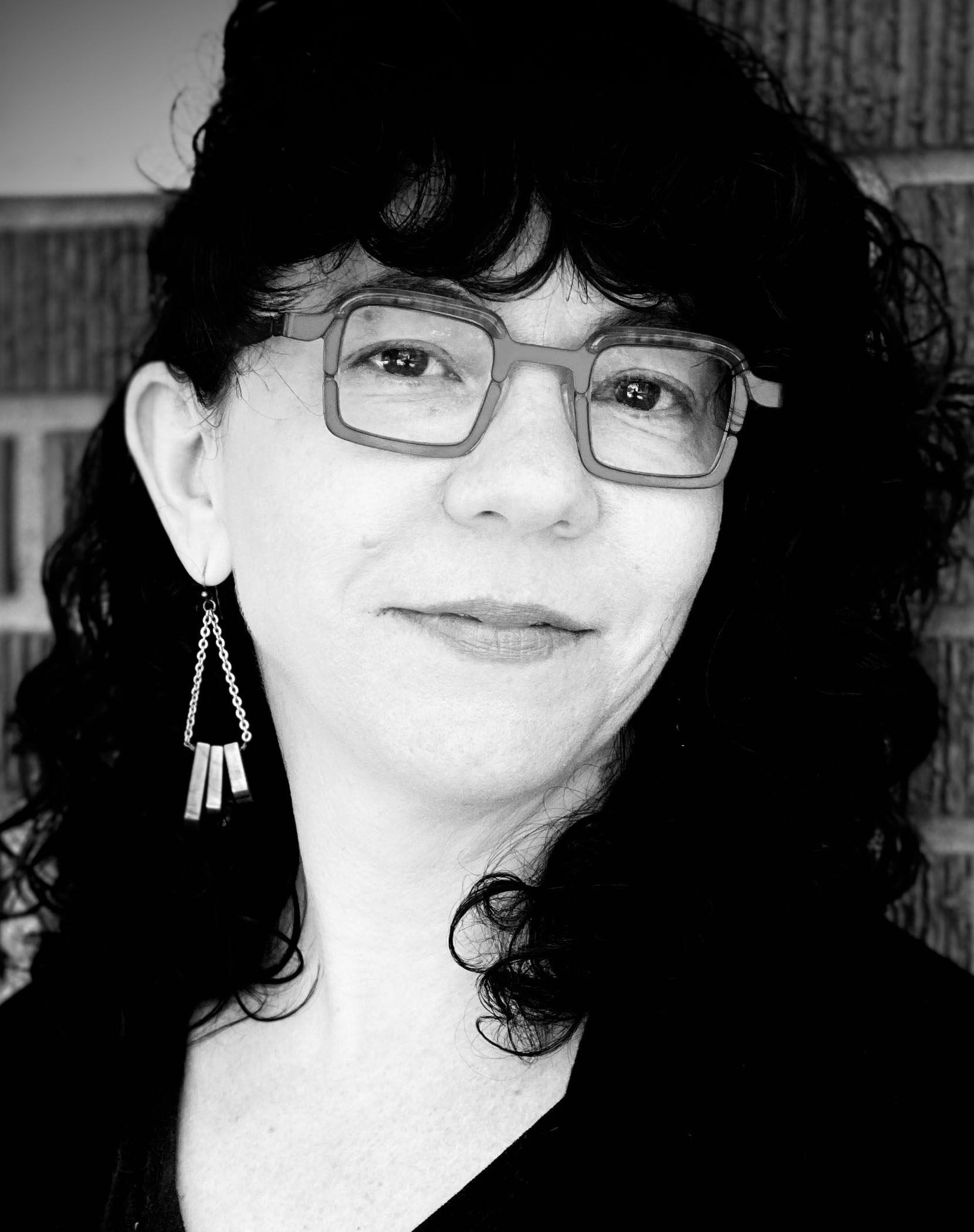 Dr. Natalie Loveless
Dr. Natalie Loveless
Associate Professor
Faculty of Arts, Department of Art & Design
Natalie Loveless is Associate Professor, Contemporary Art and Theory, in the Department of Art and Design of the University of Alberta, located in ᐊᒥᐢᑿᒌᐚᐢᑲᐦᐃᑲᐣ (Amiskwacîwâskahikan) on Treaty Six territory. Since 2012, Loveless has have lectured and written on research-creation as a method for building inclusivity and working in alternative scholarly ways that draw on the insights of the visual arts, while fostering diversity of methods and outputs across disciplines within the university as well as university-adjacent spaces. Recent publications include How to Make Art at the End of the World: A Manifesto for Research-Creation (Duke University Press), Knowings and Knots: Methodologies and Ecologies in Research-Creation (University of Alberta Press), and <Immune Nations> Research-Creation at the Intersection of Vaccine Science and Global Health Policy (Imaginations: Journal of Cross-Cultural Image Studies).
Loveless is the founder and director of the Research-Creation and Social Justice CoLABoratory, and co-directs the University of Alberta’s Faculty of Arts Signature Area in Research-Creation (SPAR²C: Shifting Praxis in Artistic Research / Research-Creation). She is currently working on a new book and curatorial project, Sensing the Anthropocene: Aesthetic Attunement in an age of Urgency and is research-creation lead on Speculative Energy Futures, part of the Just Powers initiative funded by the Future Energy Systems Canada First Research Excellence Fund (CFREF). In 2020 Loveless was elected to the Royal Society of Canada (College of New Scholars, Artists, and Scientists).
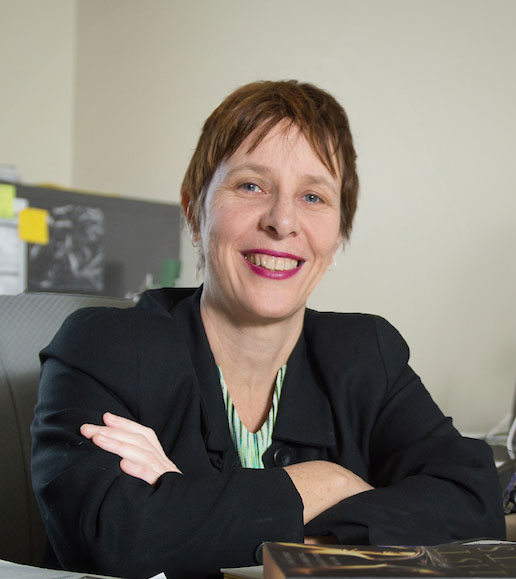 Dr. Fiona Nicoll
Dr. Fiona Nicoll
Professor
Faculty of Arts - Department of Political Science
Why are the economic, political, cultural and environmental crises that face us so often posed as analogies between gambling and other forms of human and environmental exploitation rather than in terms of their systemic interaction?
Dr. Nicoll’s work seeks to extend our understanding beyond the concept of ‘casino capitalism’ (developed in 1986 by British economist, Susan Strange) to develop a holistic understanding of how commercial gambling industries disperse benefits and harms unevenly and unequally. As a Kule scholar, she will focus on aspects of gambling that are most relevant for Alberta, a state that is heavily dependent on different forms of resource extraction.
Collaborative and interdisciplinary research is a consistent thread throughout her academic career. Nicoll is a founding member and first Vice President of the Critical Race and Whiteness Studies Association, she established and edited the inaugural issue of the journal Critical Race and Whiteness Studies in 2005. She also co-edited one of the first issues of Borderlands eJournal in 2002 on political definitions and challenges related to contested sovereignties in settler-colonial states, as well as an international collection of essays in critical race and whiteness studies titled Transnational Whiteness Matters in 2008.
A major interdisciplinary arts-based project is Courting Blakness: Recalibrating Knowledge in the Sandstone University (2015) based on an innovative art installation with eight Indigenous artists and curated by Fiona Foley, which was held in the Great Court of the University of Queensland, and featuring essays from researchers in political science, anthropology, law, cinema studies and architecture, together with reflections from curators and visual artists. Most recently, as an Alberta Gambling Research Institute Chair, she established and currently co-edits the Journal of Critical Gambling Studies. Her current book project Disciplinarity and Academic Integrity in Gambling Research, co-authored with an information scientist, an expert in research bibliometrics and visualisations, and a critical gaming scholar, is due to be published with the University of Alberta Press in 2021.
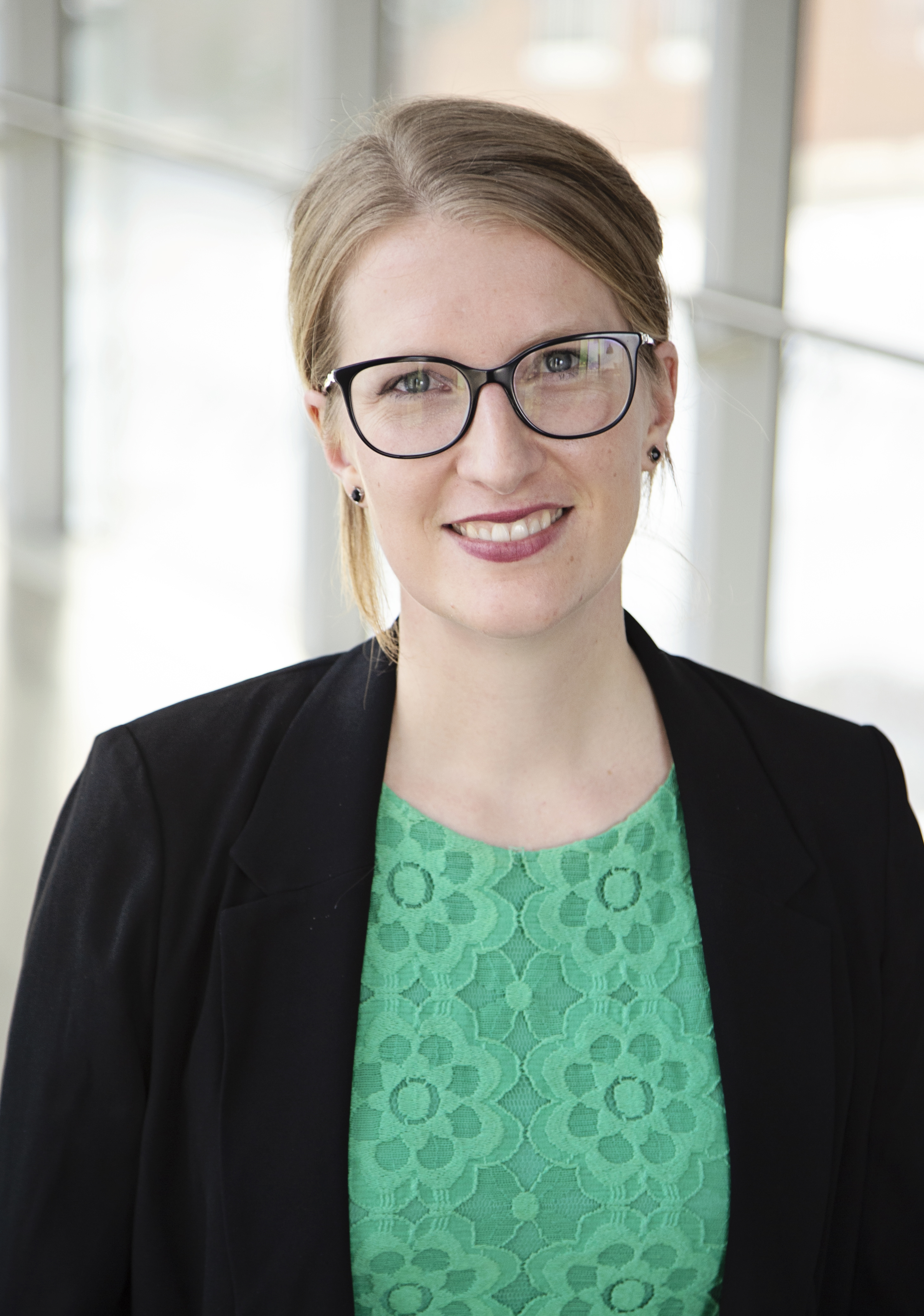 Dr. Sherilee Harper
Dr. Sherilee Harper
Associate Professor
School of Public Health
Sherilee Harper is a Canada Research Chair in Climate Change and Health and an Associate Professor in the School of Public Health at the University of Alberta. Her research investigates associations between weather, environment, and public health in the context of climate change, and she collaborates with partners to prioritise climate-related health actions, planning, interventions, and research.
She is a Lead Author on the Intergovernmental Panel on Climate Change (IPCC) Special Report on the Ocean and Cryosphere in a Changing Climate (SROCC); Lead Author on the IPCC’s Sixth Assessment Report (AR6-WG2); is a Lead Author on Health Canada’s upcoming Climate Change and Health Assessment; and serves on the Gender Task Group for the IPCC.
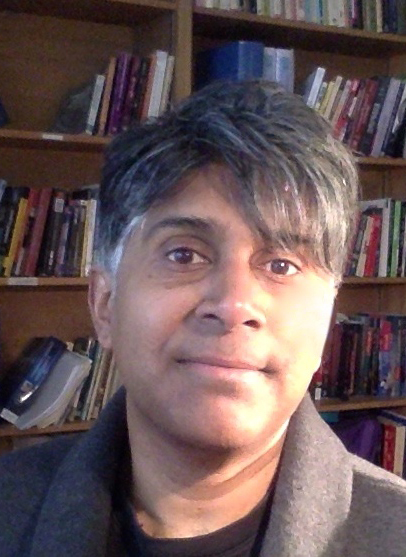 Dr. Sourayan Mookerjea
Dr. Sourayan Mookerjea
Associate Professor
Faculty of Arts, Department of Sociology
Sourayan Mookerjea is associate professor of theory and cultural studies and director of the Intermedia Research Studio in the Department of Sociology, University of Alberta, in Treaty Six Territory where he specializes in critical social theory, global sociology, and intermedia research. From a visible-minority immigrant family with roots in India’s system of caste privilege, his research addresses questions regarding the cultural and class politics of renewable energy transition, and critically engages with eco-feminist degrowth and commons theory in order to delink social and environmental justice theory and praxis from the colonizer’s model of the world. His current projects include SSHRC-funded research on Intermedia Commons, Political Ecology, Pluriversal Regeneration and Degrowth and Toxic Media Ecologies: Critical Responses to the Cultural Politics of Planetary Crises.
He is co-director of Feminist Energy Futures: Powershift and Environmental Social Justice as well as iDoc: Intermedia and Documentary as well as a co-investigator on the Just Powers team for the research-creation collaboration, Speculative Energy Futures; He is a founding member of RePublicU, a critical university studies network and the Arts and the Anthropocene Research-Creation Social Justice CoLABoratory at the University of Alberta; He is also co-editor of Canadian Cultural Studies: A Reader (Duke University Press, 2009).